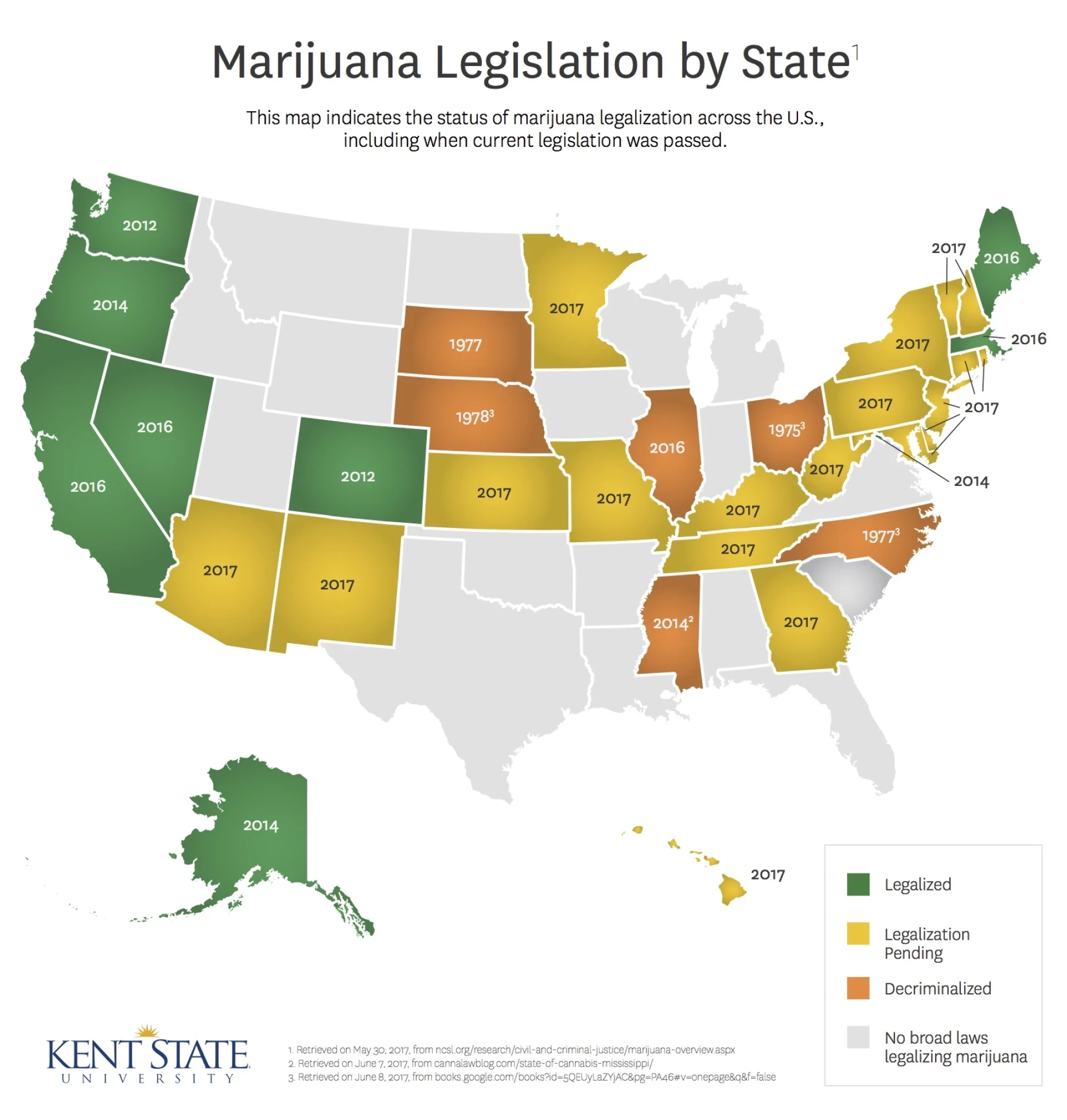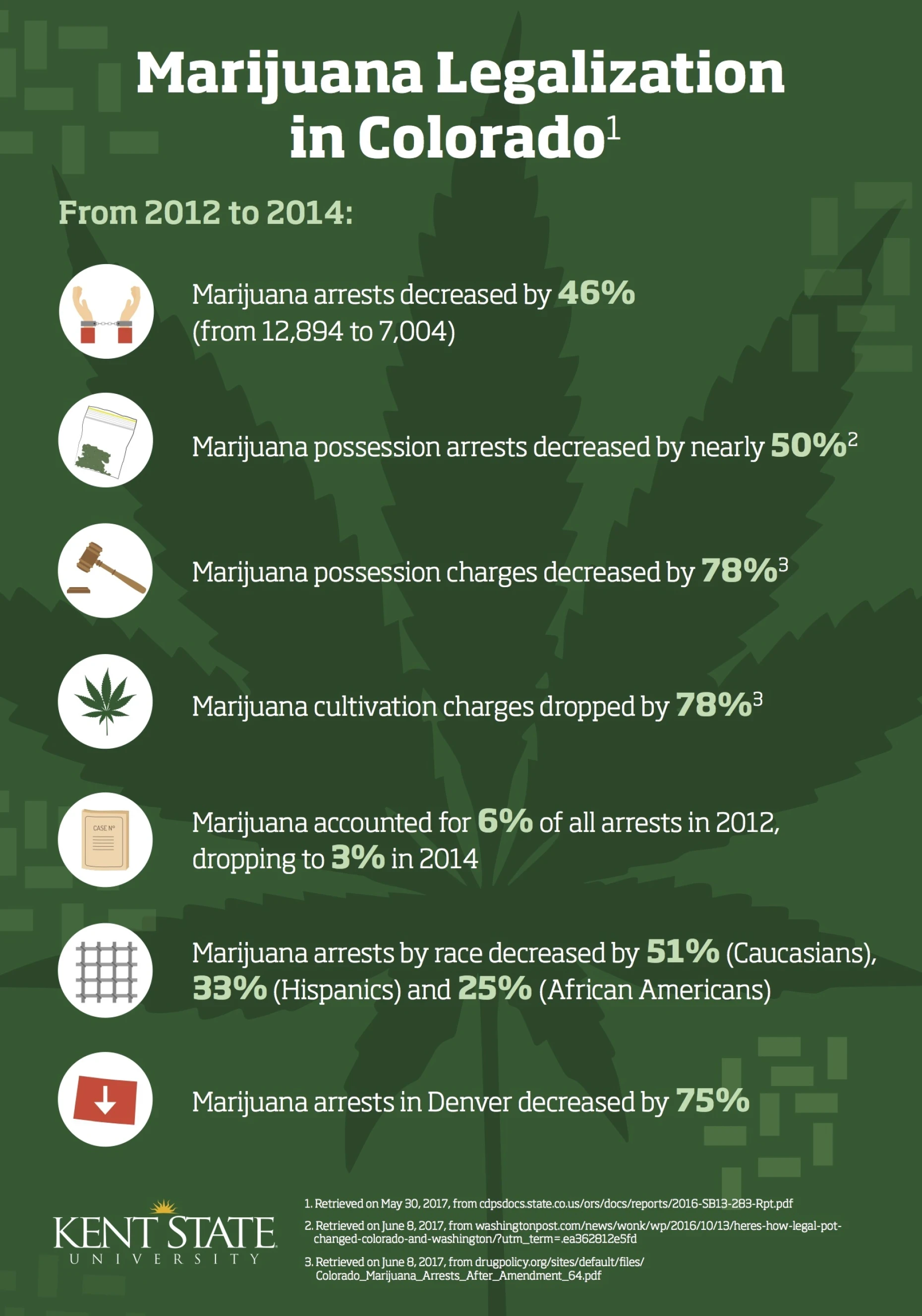Severe punishments for drug-related offenses—particularly possession of marijuana—have historically triggered global public outcry, causing many nations to rethink their approach to the applicable drug laws.
Here in the United States, decriminalization laws for marijuana were first passed in the 1970s but remain an oft-debated legislation item today. As of September 2017, more than half of all states, as well as the District of Columbia, have either decriminalized marijuana possession or, in some cases, fully legalized its recreational use.1
It has now been several years since the first legalization policies were passed, so we can finally start to examine their impact on the nation’s earliest adopters. The map below breaks down current marijuana legislation across the country, providing a better understanding of the timeline as we begin to explore specific economic and criminal effects in certain states.
Of these early adopters, Colorado is a notable standout, with a billion-dollar-a-year marijuana industry that has been thriving since early 2014.2
Since then, most Colorado officials have agreed that legalization has not created any significant or widespread concerns for the state and in some ways has actually had the opposite effect. In 2015 alone, the state’s new industry brought with it an influx of new jobs and nearly $135 million in revenue.3
Similar findings were published last year in a report from the Colorado Department of Public Safety, who examined public safety and health statistics since the legalization amendment passed in 2012. While much of the report only reflects data through 2014, it may still indicate trends moving in a direction that many did not anticipate.
A partial summary of this information is provided in the chart listed below.
Overall, the lasting impact of marijuana decriminalization and legalization has yet to be fully determined. But if Colorado’s initial findings are any indication of what’s to come and the state’s crime statistics continue to trend in a positive direction, it seems likely that there will be broader adoption of similar decriminalization laws across the country.
Want to be part of the conversation about criminal justice? Take a look at our infographic exploring crime statistics around the country and consider how national drug law reform could potentially impact those numbers in the future.
Sources:
- Retrieved on November 8, 2017, from governing.com/gov-data/state-marijuana-laws-map-medical-recreational.html
- Retrieved on November 8, 2017, from bostonglobe.com/metro/2016/02/21/from-colorado-glimpse-life-after-marijuana-legalization/rcccuzhMDWV74UC4IxXIYJ/story.html
- Retrieved on May 30, 2017, from cdpsdocs.state.co.us/ors/docs/reports/2016-SB13-283-Rpt.pdf






